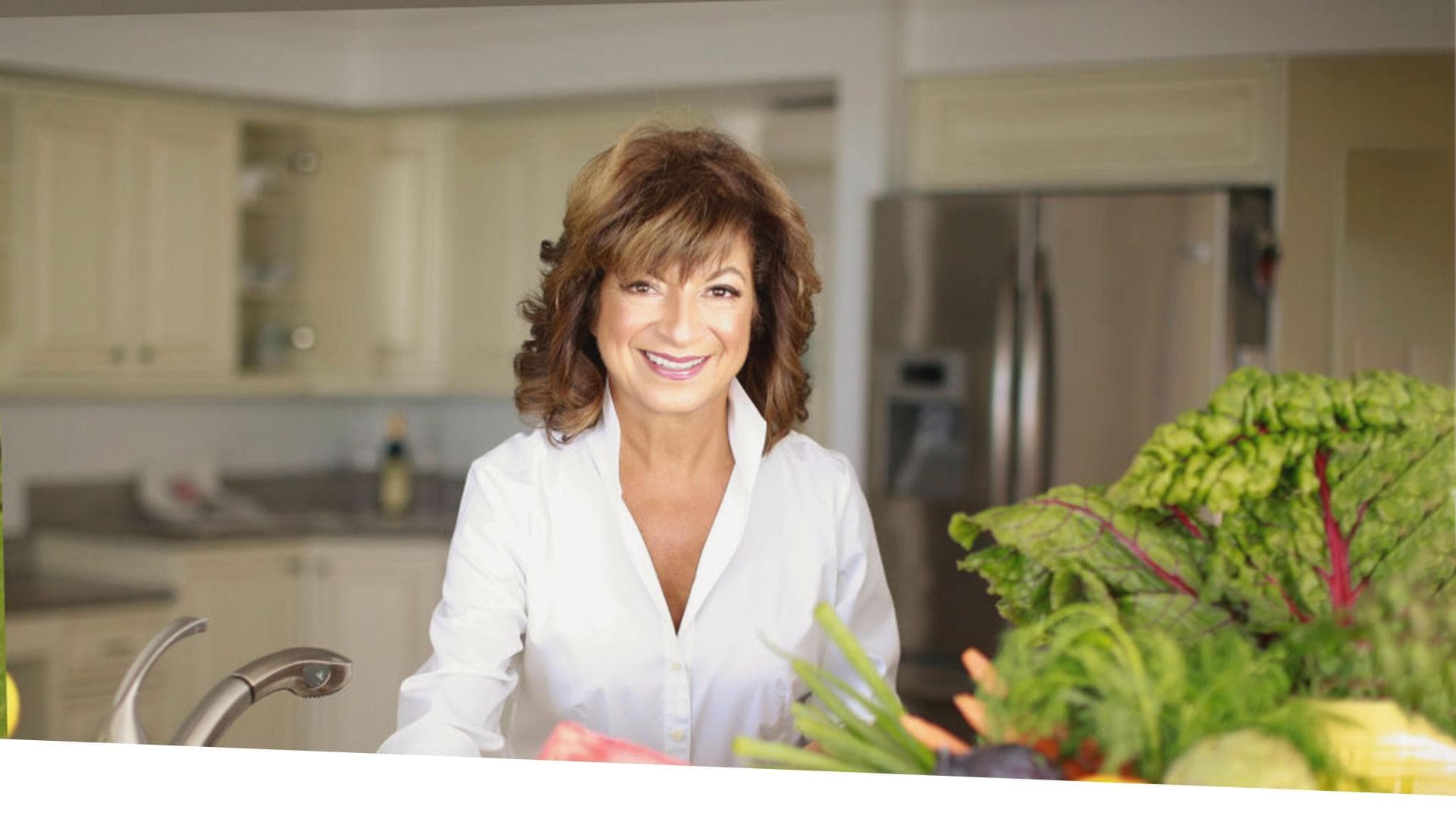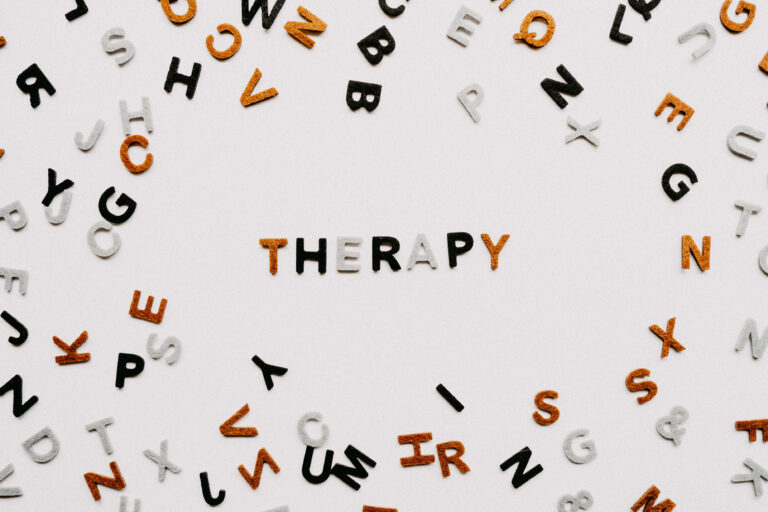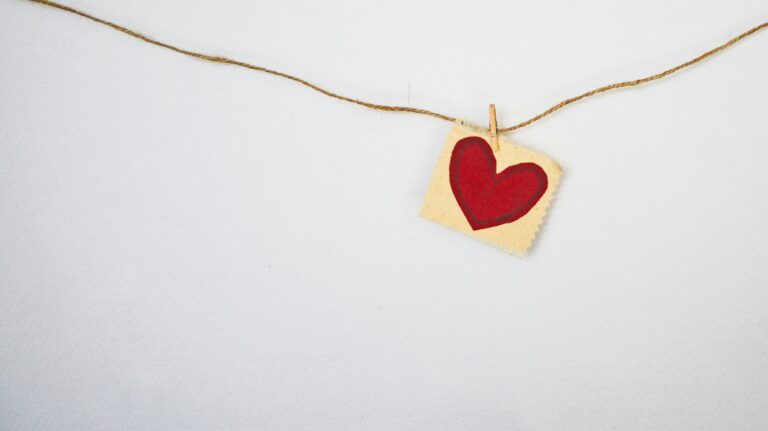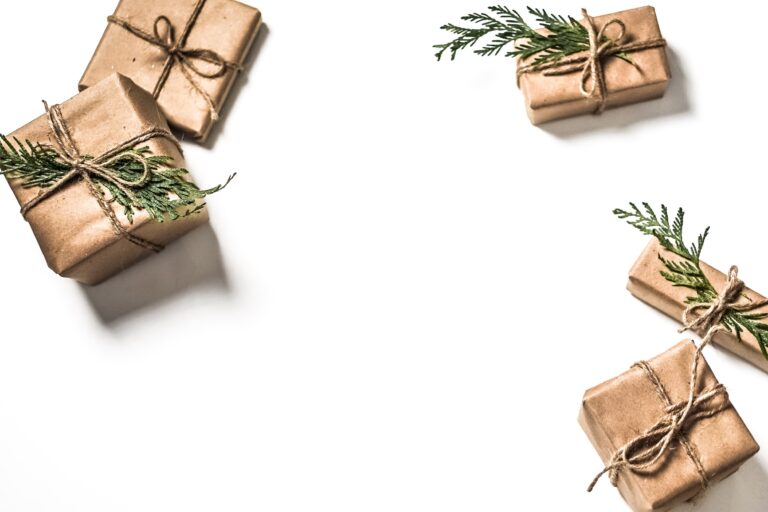Cooking for One: A Widow’s Take on Health and Healing
In this podcast episode, I delve into the inspiring story of Marie Scott, a widow who turned her grief into a catalyst for positive change. Marie discusses cooking for one and the power of food as medicine as well as learning to take care of yourself as a widow
Through her commitment to holistic health and self-care, Marie not only found comfort in her own healing but also discovered a newfound purpose in helping others navigate the challenging landscape of loss.
Join us as we explore Marie’s path to wellness, uncover the power of food as medicine, and learn valuable insights for embracing life after loss.
Listen to the Full Episode
Links + Resources From This Episode
- Marie’s webiste at mariescottwellness.com
- Are you searching for emotional support, practical advice, and guidance on navigating widowhood? Join us in the Widow Squad membership
“It’s really important as you move through grief to learn how to take care of yourself”
Episode Transcript
Melissa: Hi and welcome to the Widow Squad podcast. I’m your host Melissa Pierce and on today’s episode we’re chatting with Marie Scott.
Marie is the creator and founder of Happy and Healthy After Widowhood. She’s also a best-selling author of three books with two more on the way. She’s an internatinal speaker and a certified health and grief coach.
So let’s get to it. Welcome to the show, Marie. It’s great to see you again.
Marie: Yes, thank you, Melissa. It’s good to be here.
Melissa: Well, if you wouldn’t mind sharing a little bit about your widow story. What brought you here?
Embracing Health and Healing: Marie’s Journey of Transformation
Marie: Yes. So it’s hard to believe, but five years ago last month, April 15, 2018, the love of my life, retired captain William David Scott, took his last breath peacefully in my arms, and it was the most beautiful moment of my life, and at the same time, the most devastating. I was thankful that he was at home as he wished and thankful that he wasn’t in pain anymore. It was a six month cancer journey. And after he died, I remember lying on the floor wondering, who is he going to take care of now? And the answer came back quickly, you silly. And after being such a good Florence Nightingale with Dave, after he had four brain surgeries, two knee replacements, and two hip replacements, it’s no wonder we thought he’d beat cancer. But he didn’t, and that began my journey.
Melissa: And you have a Dave. And I have a Dave. So we share that in common, our Daves. So what inspired you to go back to school, get your health coaching certification, your grief coaching certification? What was the inspiration behind all that?
Marie: My mom died of Alzheimer’s the same year, and it was a double whammy on the stress scale. And if you know anything about cancer, there’s definitely a link between nutrition and cancer, and the same can be said with Alzheimer’s. You’ve heard the stories about aluminum, and we grew up in a big Italian family, cooking pasta every Sunday, big aluminum pots that were, like, probably 50 years old.
So I went back to school thinking I was just going to learn a little bit more about nutrition, and because food is a passion of mine, and it turned into a health transformation for me. And just by changing how I approached food, it led me down a path to learn more about functional medicine. And I became a health coach for myself.
Within six weeks, just by changing what I ate, I dropped 30 pounds I’ve been carrying around for 20 years. Six weeks and six weeks. Wow. Okay. It was an amazing transformation. And what’s odd is I thought we were eating healthy to begin with. We have been gluten free since 2013, but we were still eating stuff like gluten free pasta and gluten free bread. Learning more about nutrition led me down the path of, hey, you basically can’t eat anything out of a box. And so by going and shopping the perimeter of the supermarket, I was able to get healthy. And I thought I was healthy all these years, right? I walked the golf course every week. So what? I was overweight. I thought, it’s because I quit smoking three times and thought, oh, well, it’s a good trade off, right? And just by changing what I ate around the perimeter of the stores and changing to grass fed meat, organic chicken.
It’s funny. My friend Cindy says when she needs antibiotics, she’ll just eat a piece of chicken, right? So just learning more about nutrition and then that led me to my life transformation. I had started the book, my first book as a journal, and getting into meditation and breath work through coaching the coaching academy, I learned that journaling was a great way to release thoughts and relive happy memories. So going back to school, I learned way more than food as medicine. I also learned about mindfulness techniques, and it helped me articulate the seven steps to healing after loss, which I teach today.
Melissa: And let’s go back to I love what you said about after Dave died and you’re on the floor, or just like, who am I going to take care of? Who’s going to take care of me? When did you come to that realization that, oh, wait, I need to take care of me? Was that like a foreign thought for you?
Marie: It was, yes. And somebody told me that’s because I have a mother instinct in me coming from a large family, eight brothers and sisters, and I’m the only one who didn’t have children, it was by choice, because I was traveling in my last life. I had a great career at Oracle in the technology field, and so I was a great caregiver. And because I’m not a mother myself, I remember taking care of my mom, and she said, oh, you don’t have to do this. I said, “Mom, I think it’s because I didn’t have kids, so I could take care of you.” I’m also a great aunt. My niece bought me this plaque that said, aunts are like mom’s, only cooler.
So being a caregiver to everybody else and my family and my late husband, it was a foreign thought to take care of me. There was a gap in my life, like, now who do I take care of? And the answer came back, you. And it took about probably eight or nine months after Dave died, because as a widow knows, every single thing is different. Everything’s different from how you shop to how you smile to how you eat, to how you interact with the world. Every single thing is different.
Melissa: What was one or two? Was it just all of a sudden you’re like, yes, I’m going to go start walking and treat my body with love and care? Or was it if you can just kind of walk us through what that looked like for you.
Marie: Yes. So I was living in Charleston at the time, and about a year before Dave died, I tore my rotator cuffs, tore it 75%, which in the journals, they say they can’t be repaired.
So I found this amazing doctor in Charleston who helped rehab this torn rotator cup. It’s better than 150%, and they said it could never be done. And so he introduced me to the world of natural medicine. He had an osteopath working with him, and it was the first time in my life he sat down and took a family history. And at the time, I had severe gut issues. I was living on Immodium. I thought that was normal. I thought it was because I was traveling too much and had no energy and was tired all the time. And so this osteopath started down the path of taking a family history that led me to the world of functional medicine.
And when I discovered the Living Proof Institute in Toronto, I flew up there. And to this day, five, four years later, I’m still working with the same doctor. And he put me on what’s called the Essentials Program. And so for six weeks, I had cooking and coaching through changing eating habits, and that’s literally, I went from a size twelve to size ten. I thought, oh my God, this is awesome. Great. I started, went shopping, and then as another week went on, it was like, wow. I went down to size eight. No exercise involved, just by what I was eating, and I thought, this is great. I went shopping again. And then finally it got down to a size six. That’s okay, I can’t do any more shopping. And so I’ve stabilized all this time at a size six. And better yet, I got off all my medications. So through functional medicine and learning about getting to the root cause of why I had gut issues in the first place led me to think that I’ve got severe nutrition problems. And changing the way I approach food and my lifestyle changes helped me with the dramatic health transformation. And so that’s kind of what led me from a torn rotator cough to functional medicine to becoming a health coach.
Melissa: You went down one path and you didn’t even realize that you were going to go down another one. Were there any other health issues or things that are typical with widows, like widow fog? Oh, God, yes. Just pain in your body, did it help with any of that, the changes that you were making?
Marie: Yes. So I started a weekly posting called Widowhood Wackiness because some of the stuff that happened to me in the first six months of widowhood were crazy, dangerous, funny, and so it’s important to get the word out, hey, that stuff’s normal. It’s all caused by widow fog, which is a very real thing, scientific articles on it. So I remember at the time thinking, how am I ever going to get over this widow fog? It was very bad. And at the same time, I was on antidepressants, because that’s the first thing they give a widow. I was on cholesterol meds, high blood pressure meds. I was on, like I said, a Immodium every day Advil, which I called Golfer’s Aid. I was also pre diabetic. So just within those six weeks and also on hormone therapy, within those six weeks, I was able to wean off every single prescription. I’m taking no meds right now, and I want to keep it that way. And at my age, at 66, people think, oh, it’s normal. Got to take a pill for this, got to take a pill for that. It’s not normal. And once you get to the root cause of why it’s happening, you can get to the root cause and change it through diet, mindfulness, lifestyle changes, and self care.
Melissa: Well, that is amazing. That really is amazing. For folks, that is. The first thing they do is my doctor just gave me I’d never been on antidepressants before. It just gave it to me. It was more to help me to sleep, but I didn’t want to take something to dull me because I felt dull already. Like dulled and in shock. Yeah, that’s pretty amazing. And you have a health cooking program, or do you want to talk a little bit about that? Is that what you do, teach or show folks?
Marie: And so after becoming a health coach and going back to school to get my grief certificate for coaching, I was able to articulate the seven steps to healing. And the seven steps, it’s not rocket science, but really it’s food as medicine. That’s number one in my mind. And then the next most important step is the last one, step seven, which is to discover new purpose. And so everything I do and everything I teach, all the webinars I do on a monthly basis is all around the Seven Steps to Healing. And the second and third books are called Wellness Wisdom. It’s a collaboration with other holistic health practitioners. So everything I do and teach and coach on is around the seven steps to healing.
Melissa: What are some things that you’d like people to know about health and healing as a widowed person that maybe is not really intuitive to them or something that maybe just really surprised you?
Marie: How many widows have you talked to that said, oh, it’s just me. I won’t cook. Yeah, I’ll have popcorn for dinner. I’ll have cheese and crackers.
Melissa: I’ll eat iceberg lettuce over the sink. I’ll deny it, but I did.
Marie: Yeah, I’ll have popcorn for dinner. I can’t tell you how many times. Me too. I’m a cook. The next book is a cookbook cooking for one, two or 20 and cooking with a side of Kleenex. Because I learned after about a month or two, the shock wore off. People stopped bringing food over. I learned that if I didn’t shop and cook for myself, I was going to continue to feel like crap. And if I felt like that, I wasn’t going to want to embrace life again. And that was the most important thing for Dave. He wanted me to embrace life again, even though I could never dream it would be possible. Never in a million years. After 30 years, 30 really fun years with Dave, I never dreamed it would be possible.
So by healing myself and eating right, it helped lift the widow fog. My energy is through the roof most every day, and I just feel great. And once that happened to me, Melissa, once I health my mind, my body, and my spirit, my heart opened, and in walked the second great love of my life.
Finding Love and Hope During Challenging Times
Melissa: Well, tell us about that…
Marie: Well, it’s quite a story. It’s in the book as the corona love story. And it was January of 2020. I was getting ready to fly to London, preparing for a speech to the coaching academy. My instructor asked me to speak. At the same time, I decided there’s nothing left in this golf course community anymore. It’s nothing for a single person. I started raising my head about a year and a half later, and I started a meetup group in Charleston called Widowhood Sucks, especially after 50. And I got up to 100 members in that group, and we would just have dinners, and we would go for walks in the park. And it was a wonderful way to meet other people in the same situation. People who got it.
Melissa: Yeah. Not feel so alone.
Marie: Yes. And so just by changing my thinking about, yes, I’ve got a big heart, I’ve got lots of love left, I thought, I want a Steadman. I want, like, Oprah Winfrey. I want somebody to have fun with, show up in a limo and take me out to dinner. And they never marry. It’s just a companion to do life with, because I had that for 30 years, and I enjoyed doing life with someone.
And so I was out for dinner one night in Sarasota, and my friend didn’t show up. And it was okay. It was a really good restaurant, farm to table food, organic, really good food. So I was sitting at the bar, eating by myself. And you know that old saying, a smile begets a smile?
Well, there was a band there, and it’s January 9, 2020. There’s a band there, and it’s a really good band. And I saw this guy out of the corner of my eye dancing with every woman there and sitting at the community table. So I knew he wasn’t with anybody, but he had this big grin on his face. So I smiled back. That’s not how he tells it. He said he was dancing, looking over. So anyway, we danced, and we’ve been dancing ever since. And COVID hit two months later. And so Jeff’s from Franklin, Maine, you can’t get further from Sarasota than Franklin, Maine. So I thought, well, I’ll just fly up to see Jeff for a week. And I had on my raincoat. I remember my gray raincoat and my favorite snakeskin boots. I flew up and couldn’t get out of Maine for two and a half months. It was the best quarantine ever.
Melissa: Wow, that’s a trial by fire there. It was.
Marie: After a couple, three or four weeks, I asked Jeff, I said, “Honey, do you mind if I rearrange the kitchen a little bit?” He said no, because he knows I love to cook. So I rearranged the kitchen. Next day I said, “you realize we just shacked up together like teenagers. You let me rearrange your kitchen. We are now officially living together.” And he laughed.
On our one year anniversary, he proposed to me on a zoom call. Totally took me by surprise. And that was January 9 of 2021. January 9, 2022, we got married. And it’s been the best, the second great love of my life, just by healing myself and opening my heart and widows that I talk to now, it’s like there is hope. You don’t have to be alone if you don’t want to. And so I feel like a quasi dating coach. So people, what can I do? What can I do? And I’ve got the top ten dating tips on my website, and that’s been like hundreds of people have downloaded that, and it’s not anywhere near getting online. You don’t have to get online. So that’s my corona love story. And it’s just waking up every day smiling and feeling like I’m 29 years old again. It’s amazing.
Melissa: Great. That’s great, because you said something where you were open to it, and you also had an idea in your mind of what you wanted, that next partnership, that great love to look like you wanted a companion to do life with. You were open to it, and there it happened. I truly believe that if you want partnership or love in your life again, you get to have it.
Marie: Funniest thing, Melissa. I went through the life process thinking, what the heck am I going to do now? You go through 13 categories: finances, career, friendships. What do you want in what your ideal category looks like? So in September 2019 it’s in the book I wrote this post, and it was dated September 2019. What are you looking for in a love partner? I said, Somebody fit, funny, kind, sexy, adventurous, compassionate. And in walks Jeff. And it was, like, amazing. It’s like just manifesting it by writing it down. It’s incredible. I don’t know if you’ve tried that.
Melissa: Or that’s how I manifested my love in my life. My husband Sean, in this life. Yeah, I wrote it down, I need to dig it out, but it was around close to three pages of here’s what I want, here’s what I want it to look like, how I want to feel when I’m in a relationship when I’m with him. And just tucked it away like, okay, I just ordered him up. And I just trusted that it was almost actually a way to recognize him when he crossed my path, too, because you had all the traits that you desired. So then you could oh, that person is hitting all the marks or most of the marks or 80% or something like that.
From High Heels to Mud Boots: A Tale of Two Lives
Melissa: Tell us about your two books coming out. You said one was a cookbook.
Marie: Yes.
Melissa: When is that coming out? And then what’s your other book that you have in the works?
Marie: So we split our time now between Sarasota, Florida, and Bar Harbor, Maine. Beautiful place in the world, very rural, while Florida is very modern. And so the book is called High Heels to Mud Boots. In Florida. It’s high heels. You go out to dinner all the time and in Maine it’s mud boots. And to get to camp, which is really a lake house, it’s a one mile gravel drive.
Melissa: What’d your snakeskin boots do in that? Did they survive?
Marie: So I ended up wearing just huge mud boots. For the first, like two, three weeks, the world shut down. All the stores were closed. So I ended up buying the last parka in Walmart and a pair of garden boots at Walmart.
My friend Cindy used to call and say, “excuse me, have you seen my friend Marie?” From being dressed to the nines and then being in a rural environment. So the book is called High Heels to Mud Boots and just funny anecdotes about life part two. And my friend Lee said to me, “how do you rate?” He knew Dave. He said, “not only did you have one great love of your life, now you’ve got two. Some of us don’t even get one.”
One of the things I coach on is journaling is very therapeutic. In my case, writing. I love to write. And so just memories of my life with Dave and now all these new memories, making new memories with Jeff is pretty amazing.
Melissa: I love to hear that. I love to hear that you really went after something that you wanted in your life and you believed it was going to happen. So kudos to you.
Marie: I never dreamed I’d get married again, though.
Melissa: I love it. Your cookbook, is it out yet or when is that coming out?
Marie: I have probably about 80 to 100 recipes already done. And they all have stories. Like the first time I went shopping and bought one steak and one piece of chicken and I was in tears in the supermarket thinking how much my life had changed. And so as I started cooking for myself, I thought, you know what? This is very valuable to help other women and men learn that you can cook for one. The title Cooking With a Side of Kleenex came from the first time I cooked pasta by myself. And I raised the glass of the skies and said, this is for you, Dave, with tears in my eyes.
Every recipe has a story behind it. And the message is, it’s important to take care of yourself just as you would take care if you had somebody else in your life. And so just recipes, how you can cook for one and also have leftovers for lunch the next day. So just the relationship with food and changing how people eat can really influence widows tremendously. And by eating well and learning how to cook for one is important.
Melissa: That is a big shift to make when you’re used to two, or in my case, our two boys were still actively raising them. They were ten and 13 at the time, but I remember setting the table for three rather than four, and that was a heartbreaker. But part of self care, part of doing that, cooking for one, mainly is around setting the table for yourself, setting a nice place setting. You don’t have to eat your wedge of iceberg lettuce over the sink or the bowl of popcorn as you’re watching TV. You can actually kind of make a nice ritual around having a nice place setting, having just a little glass of wine or whatever, just honoring yourself and eating slowly, chewing. I know that a big thing in functional medicine is chewing your food, something I’m trying to learn, but just honoring what you’re moving through and making it kind of nice and pretty for yourself and taking the time to sit down and eat that meal, eat that healthy meal that you’ve cooked for yourself.
Marie: And give thanks to the farmers who help put that meal on your table. And give thanks to my mom, who taught me how to cook, all of us how to cook. Funny story. One of the first recipes I made was at ribeye steak, one of Dave’s favorites, and I did it in a cast iron skillet, and I set the table and I lit a candle, had a glass of wine. I sat down and very mindful breathing, and I took a few bites and then collapsed into a puddle. But that was okay because I went through the ritual of cooking for myself. It was a great leftover lunch the next day, but expect those things to happen and be with it in the moment. But that’s one of the first stories in the cookbook.
Melissa: Oh, I can’t wait for that to come out. So before we go, I just love to hear about what’s lighting you up right now. What are you doing right now? What do you want to share with the folks listeners, one of the best things.
Marie: So I spoke at Camp Widow last month in Tampa. Amazing organization. And from that I spoke at Tidewell Hospice and they had what they called a Wellness day. And I did a half day workshop, and it was 20 women. And I started with The Seven Steps to Healing overview and then took a deep dive into Food as medicine. And for half a day I even brought my own, my favorite cooking pan. And by the end of that half day, I had 20 new friends, and every single one of them came up and got a signed copy of my book, and every single one came up and said, that was fantastic. Got great value out of it. So I’m doing it again at a couple of hospices in Florida and reaching out to hospices in Maine, because it’s really important as you move through grief to learn how to take care of yourself. And so I love talking about it. I love teaching and I love changing lives.
And I’ll share another little story. My friend Kim, who found me in another Widowhood group two years ago, she clicked on my profile, said, oh, my God, you’re such an inspiration. You wrote a book. You’re doing all this good stuff. And she goes, I’m scared about dating and I don’t know what to do. And I said, Find something you love like and she’s a hiker. And I said, Find a meetup group for hiking. And so she did. And almost a year and a half later, Bob and she just returned from a 31 day cruise around the world. They’ve been hiking all over South America, cruising in Europe, and have an amazing love story. And she came up to camp in Maine and said, this wouldn’t have been possible if it wasn’t for you. So great stories about changing widows’ lives who want to embrace life again. So that’s what lights me up.
Melissa: Oh, yeah. I can see it on your face. I can see it on your face. Well, for the listeners out there, you can find Marie at mariescottwellness.com, and I’ll put that in the listener notes. And I just really want to thank you for being here. You’re really an inspiration in showing that it’s possible to be happy and healthy in widowhood. Thanks so much for being here. We really appreciate it.







